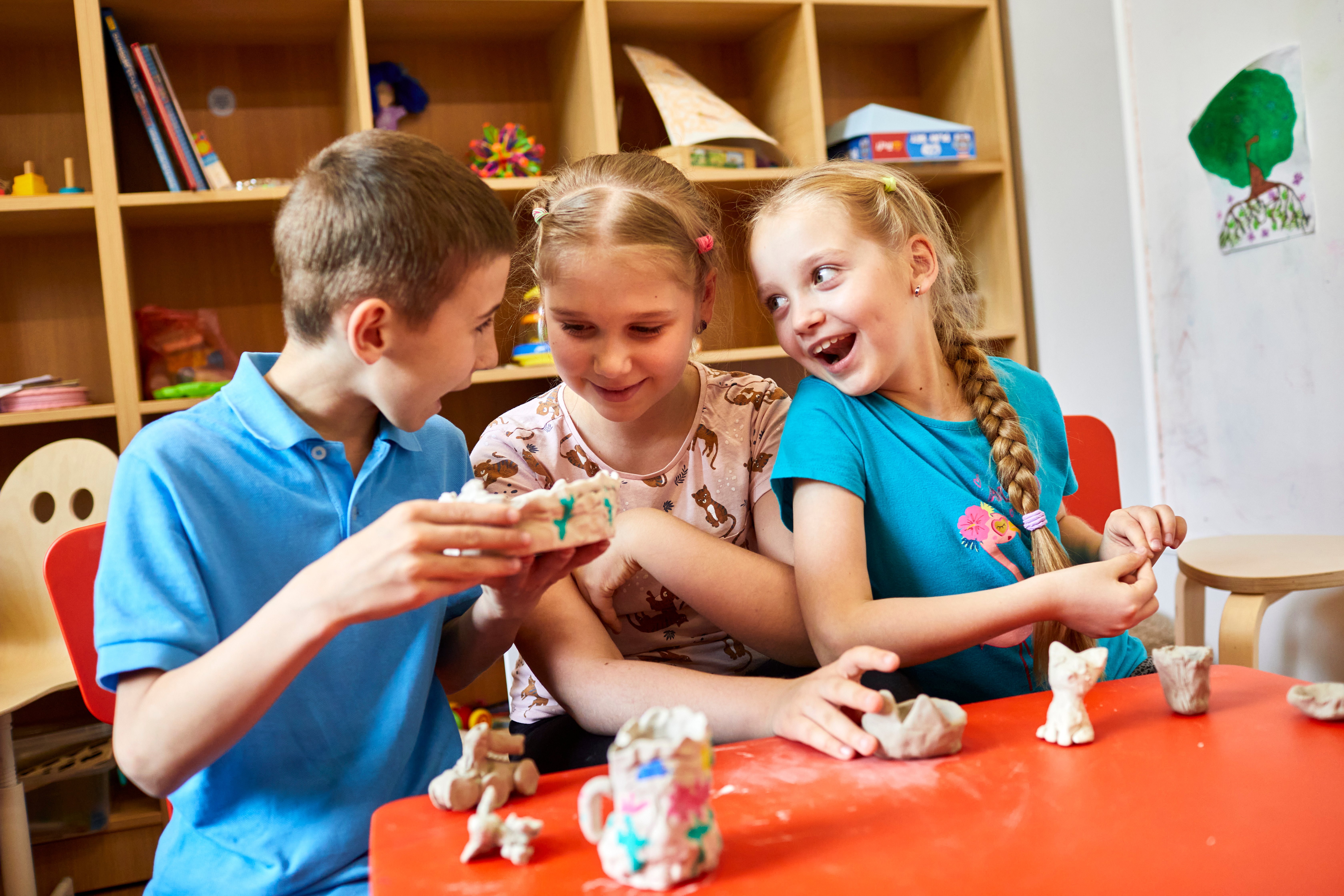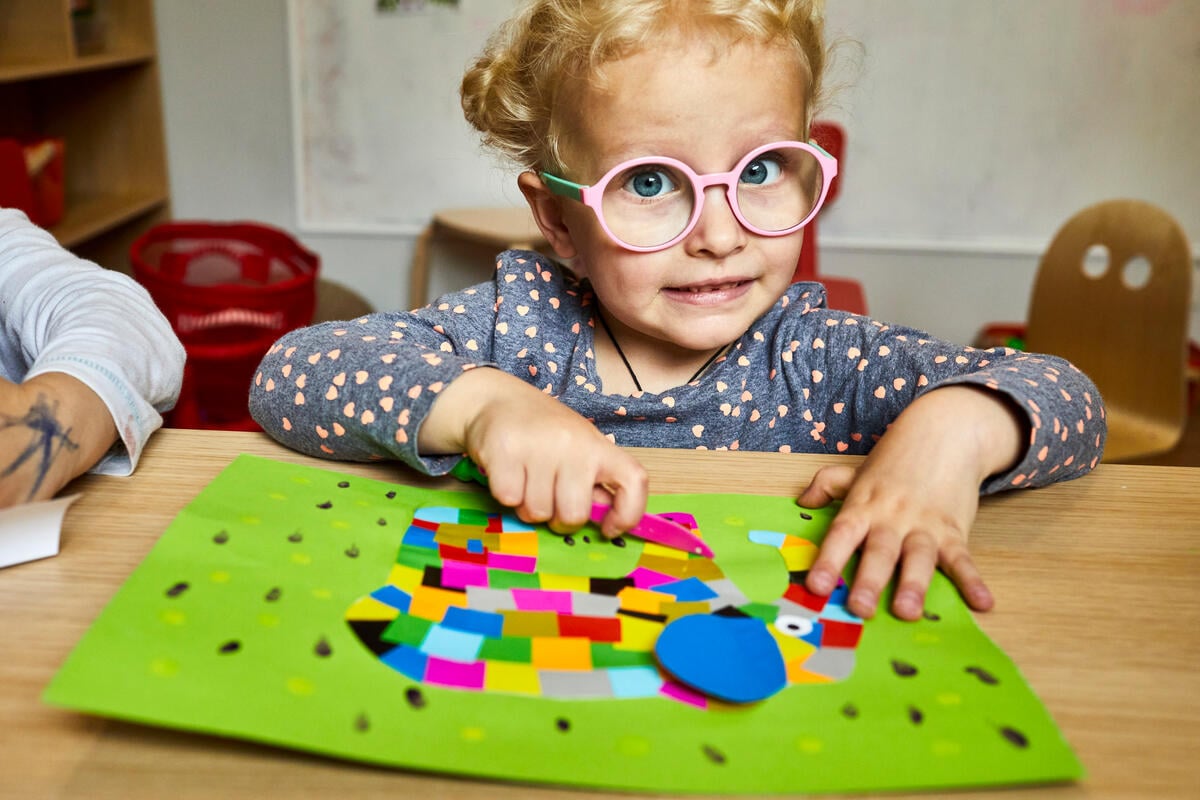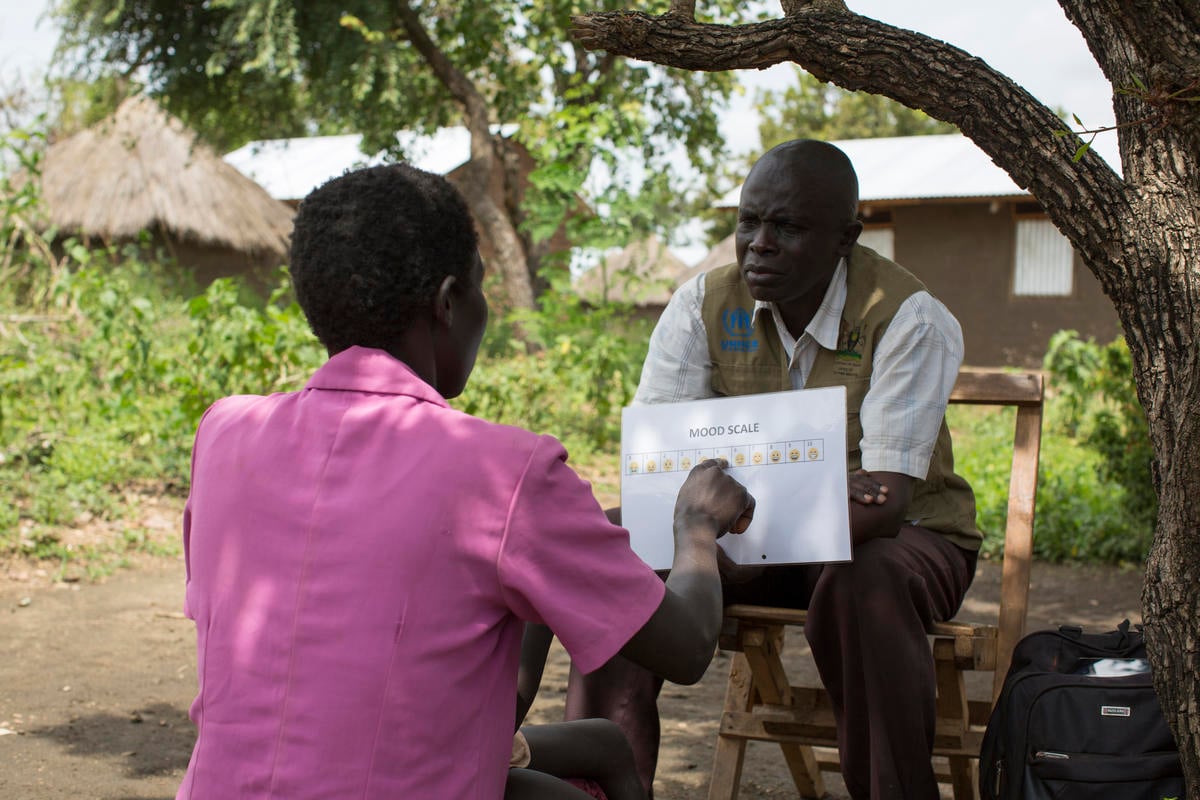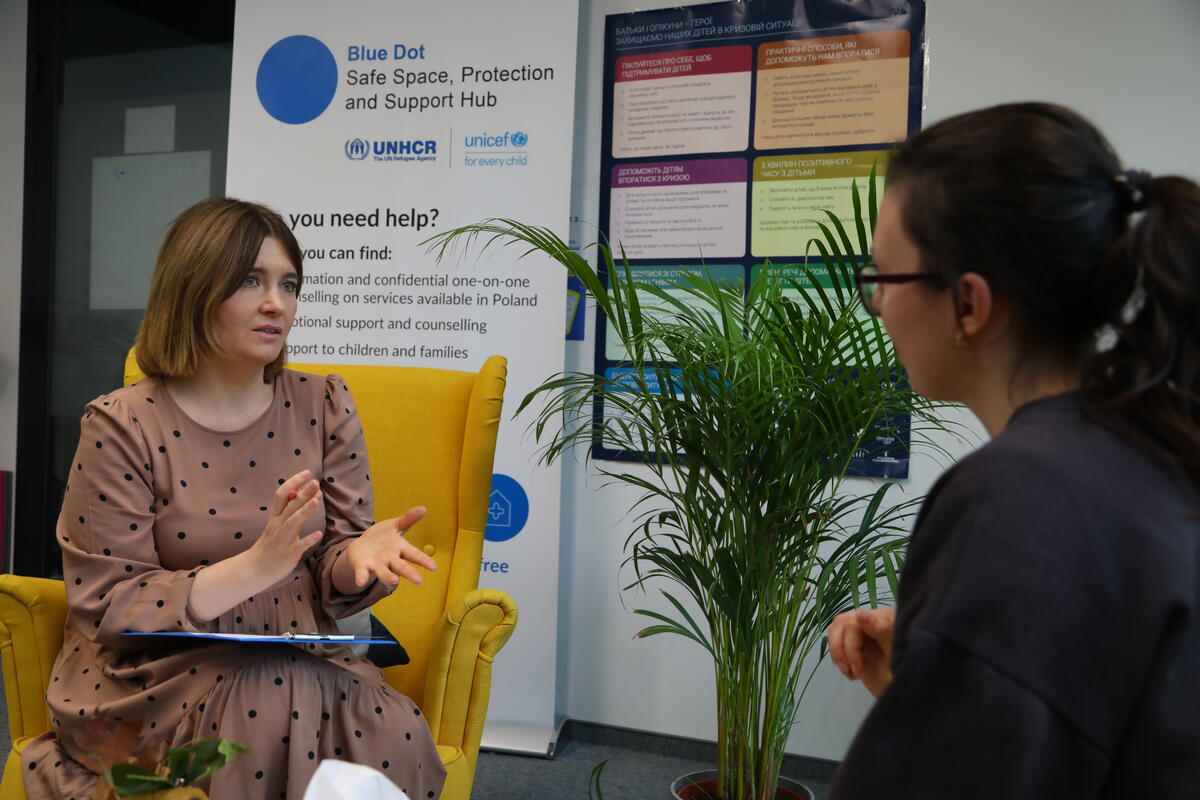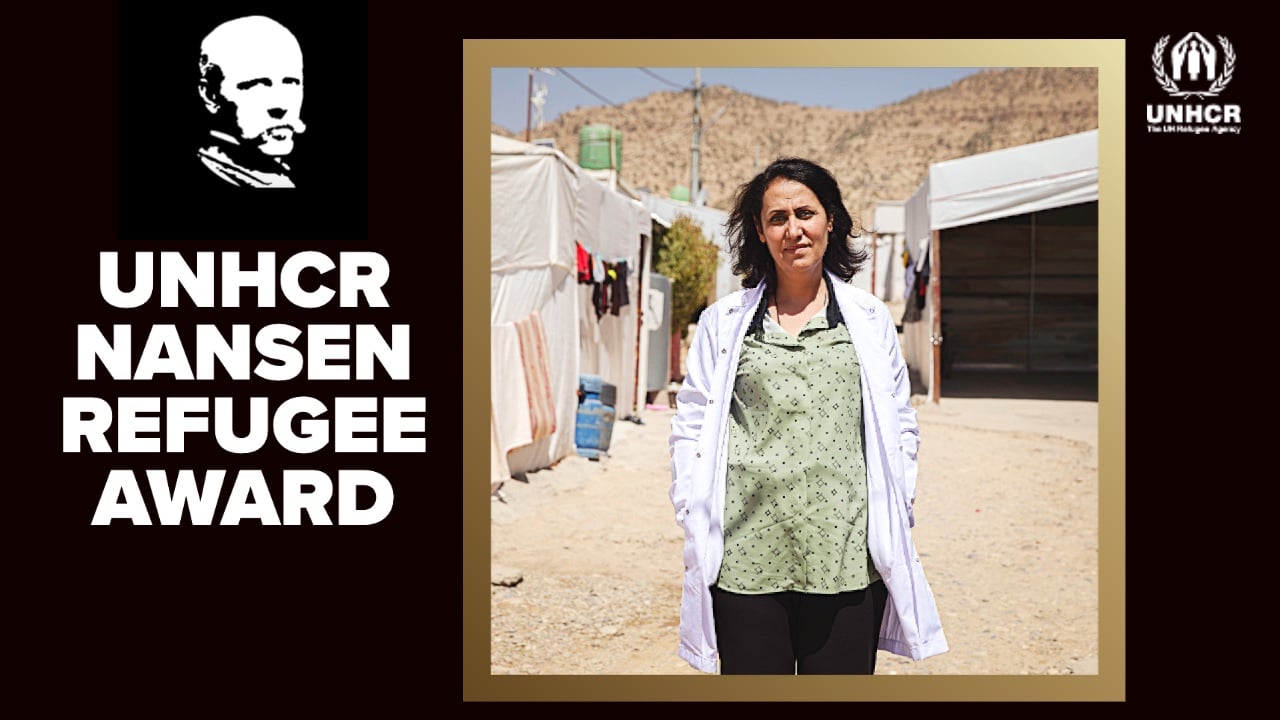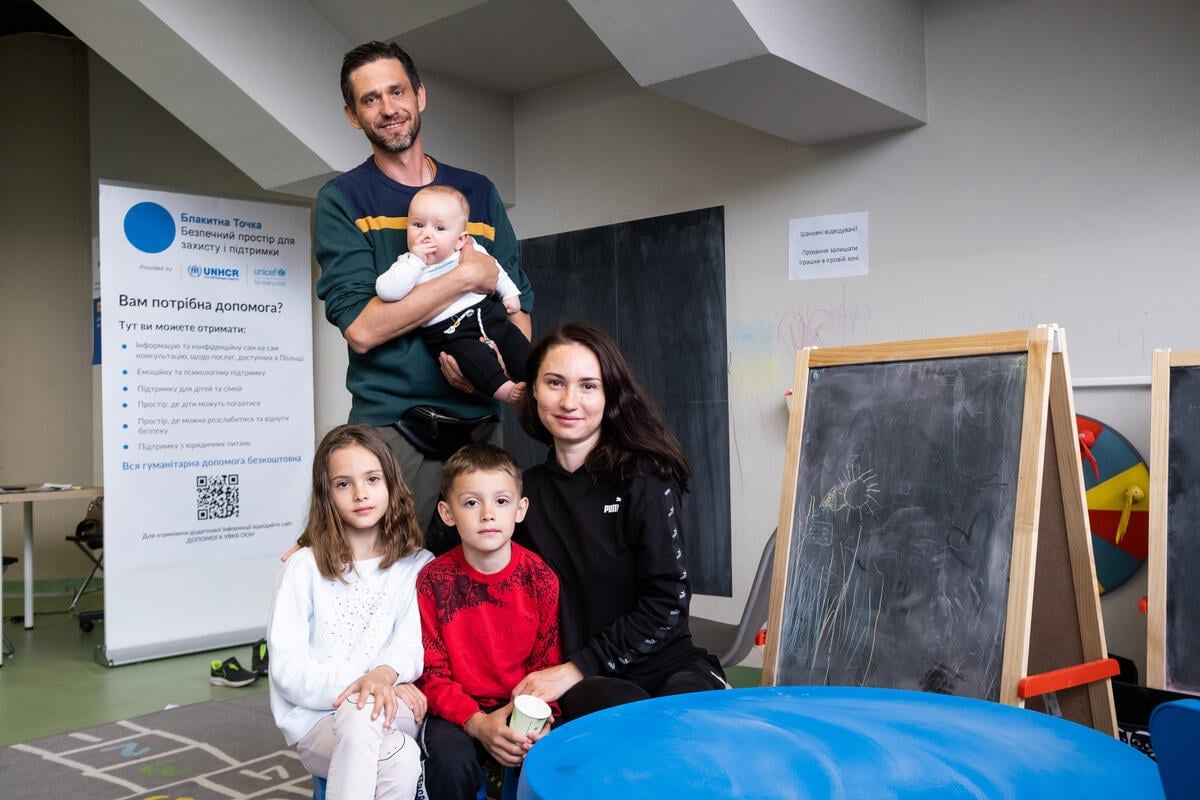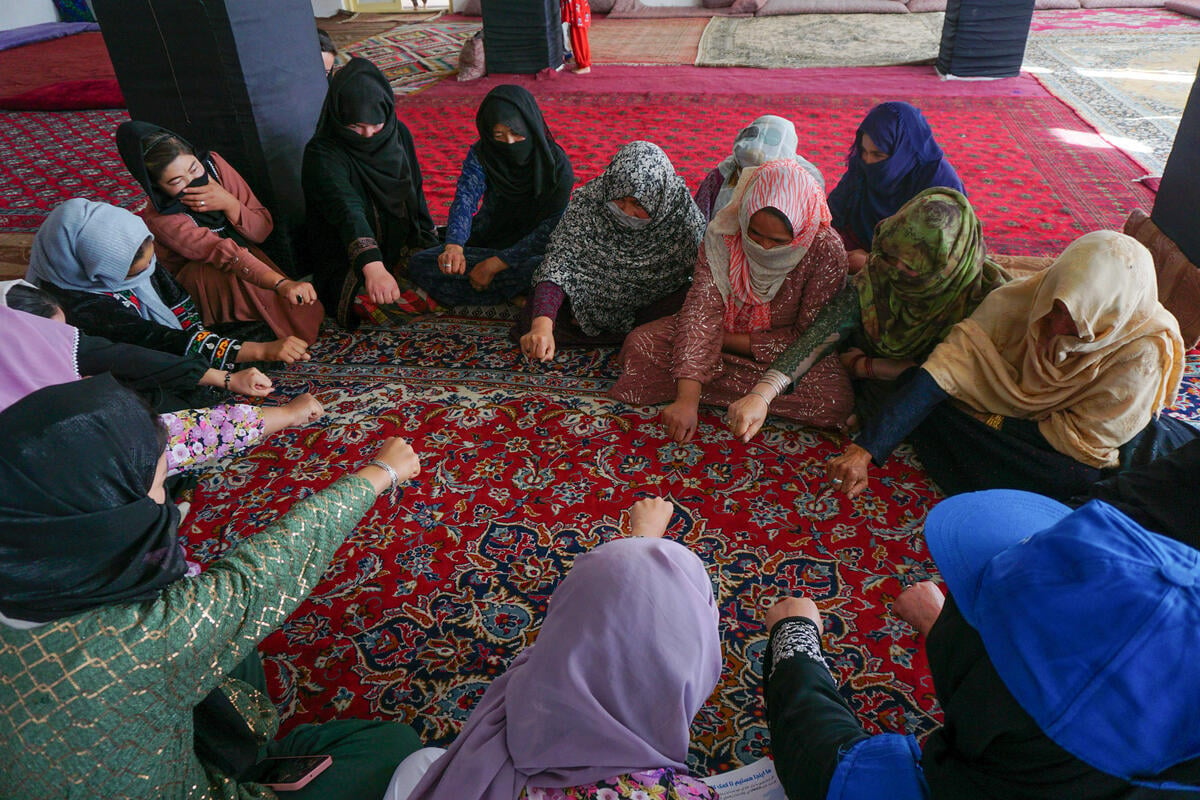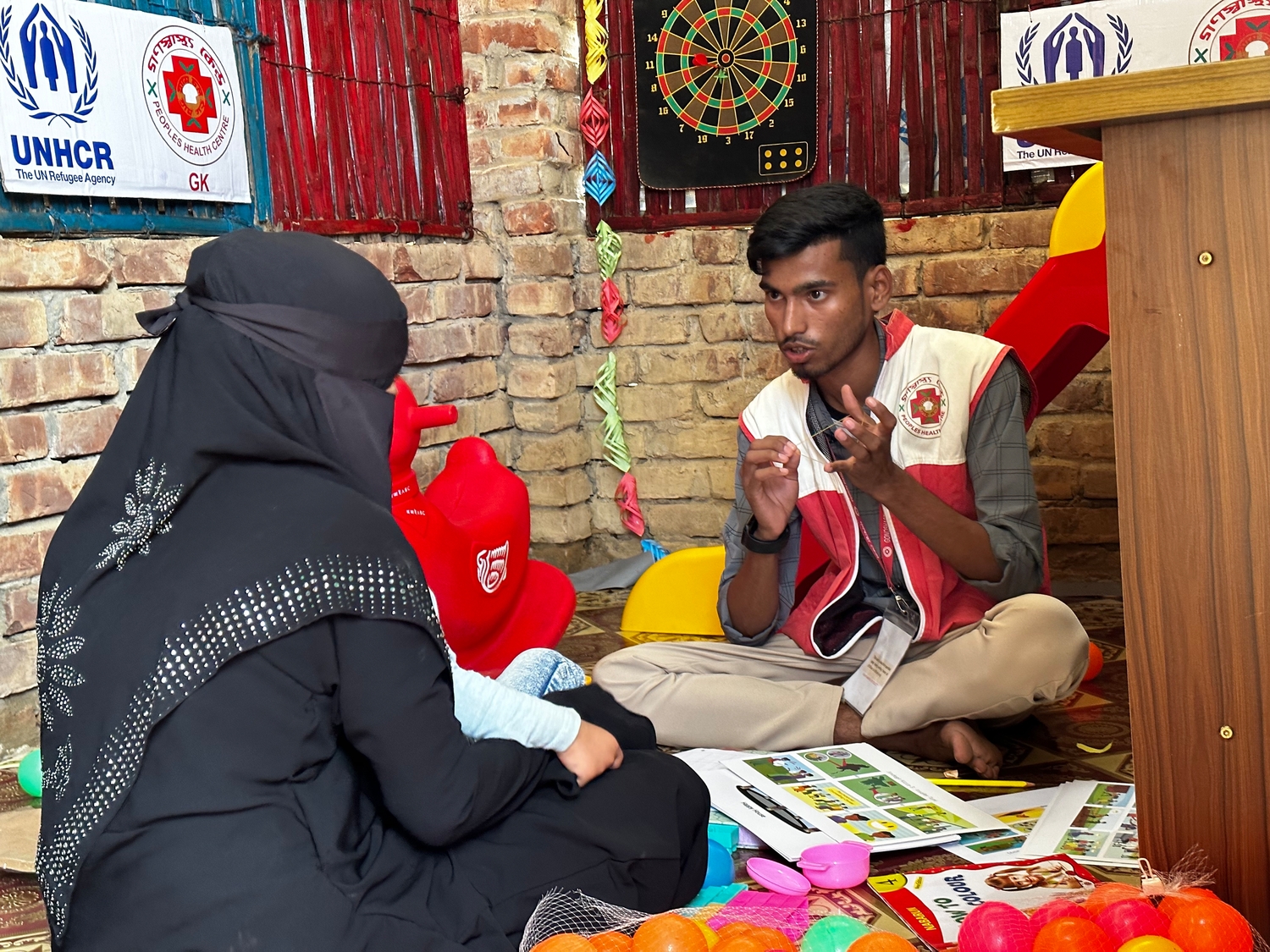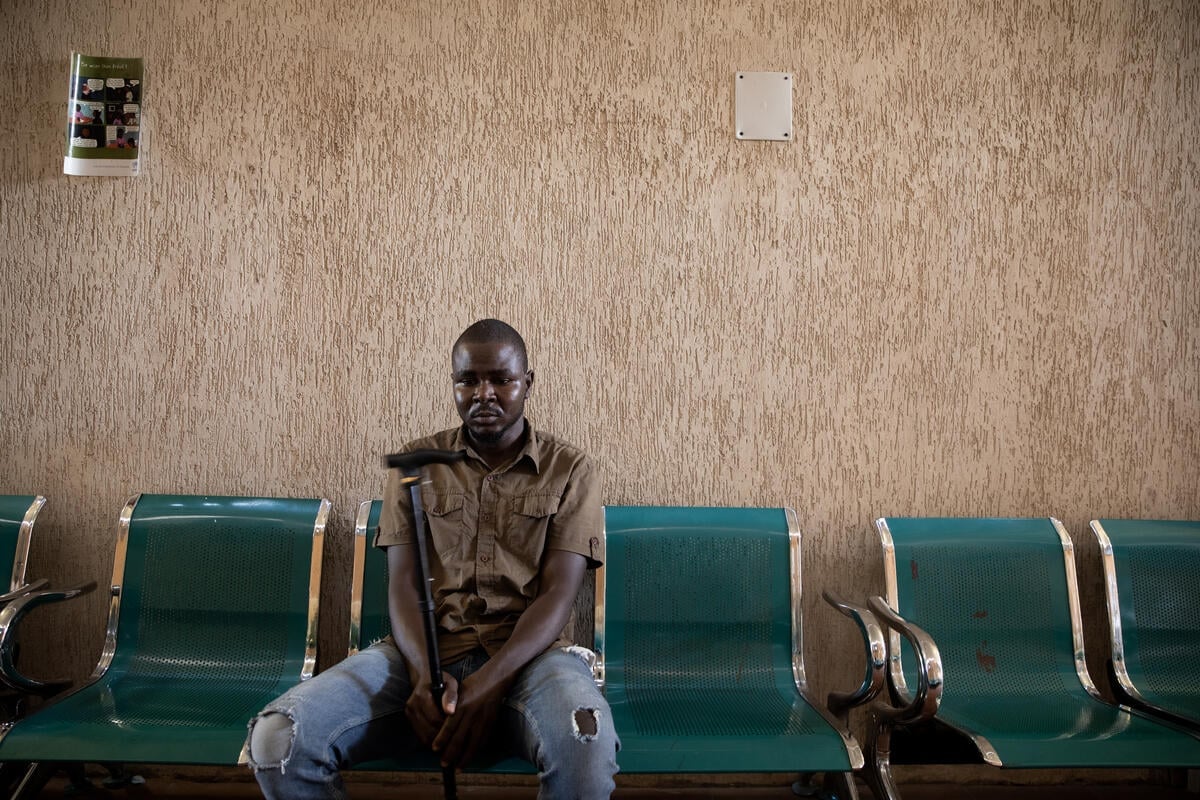A safe space for Ukraine's refugees in Romania
A safe space for Ukraine's refugees in Romania
Three young friends sit around a small, bright-orange table, happily sculpting clay. They smile as they create a menagerie of items: a cat, a pitcher, a motorcycle, a bowl. The new objects sit alongside a series of others, each decorated with flowers and little houses, all images from childhoods interrupted.
After enduring the first weeks of the war in Ukraine, Vlas and Masha, both 10 years old, and seven-year-old Ulyana, fled their hometown of Odesa for the safety of Bucharest, capital of neighbouring Romania.
In the colourful playroom at Zi de Bine, a Bucharest-based community organization whose name means “Day of Good”, the children find the space to laugh, and to play. Founded by journalist Melania Medeleanu in 2020, Zi de Bine helps Romanians get involved in social causes, such as mental health, education, and children’s issues.
"This can be the breath of fresh air they need."
The need is great. Melania says that while some of the children rush to play and chat, others “just go and sit in a corner and stay there quietly”, and that is also fine. “You have to keep in mind all the time, that they have been through a dreadful trauma, so our reactions must be very warm and calm,” she says.
“I think this can be the breath of fresh air they need so much at this point,” Melania says. “The mere fact that there is a safe space where they can meet each other, where they can cry on each other’s shoulders, or laugh together, where they can do activities that keep their minds busy, in order to stop thinking of the things that happened, this is what could be lifesaving for them.”
Romania currently hosts over 86,000 refugees from Ukraine, the majority women and children. The UN Refugee Agency, UNHCR, is supporting refugees throughout the country by providing counselling, legal advice, and psychosocial support, as well as cash for recently arrived families.
“Mental health is an area where more support is still needed,” says Pablo Zapata, UNHCR Representative in Romania. “Many refugees from Ukraine, especially children, have lived through and witnessed terrible things.” Zapata adds that UNHCR is partnering with organizations such as Autism Voice, Estuar Foundation, and Terre des Hommes to provide assistance to families and children with mental health needs.
With Zi de Bine, UNHCR is helping refugees who attend language classes, yoga, counselling, and art therapy for children. All these activities take place in the organization’s spacious and welcoming building close to the city centre, and frequently involve local Romanians alongside the Ukrainian refugees in order to build links.
Marina, who also fled Odesa in March, heard about Zi de Bine from fellow refugees and brought her three-year-old grandson for a visit. “Today is the first day I came with my grandson for the children’s art therapy class. He enjoyed it very much,” she says. And while her primary focus was her nephew’s enjoyment of the simple pleasures of making things and playing with other children, Marina found an unexpected benefit for herself. “I also noticed that other women had brought their children, nieces or nephews,” she says. “I got a chance to talk with them, sharing experiences and challenges.”
Such opportunities to meet and spend time with other refugees, as well as members of the local community are integral to rebuilding a displaced person’s sense of inclusion and wellbeing.
The art therapy classes, likewise, offer young refugees the chance to talk about and share their feelings in an informal setting and in different mediums. On a recent day, while some refugee children made clay sculptures, others were making music, drawing, and dancing. But while all of this is a relief, it is not a solution.
“I feel good here,” says Vlas, “but I really want to return to my home and see my dad. Romania is a good country, but Ukraine is my home country. My dream is to go back home.”
Home and family, and the trauma of separation and the flight from war, are on the minds of every refugee here, adult or child, and that, says Melania, is why Zi de Bine and the escape and solidarity it offers is so important.
“I see people who are laughing together and who, for a few moments, have stopped thinking about the pain they have been going through,” she says.


